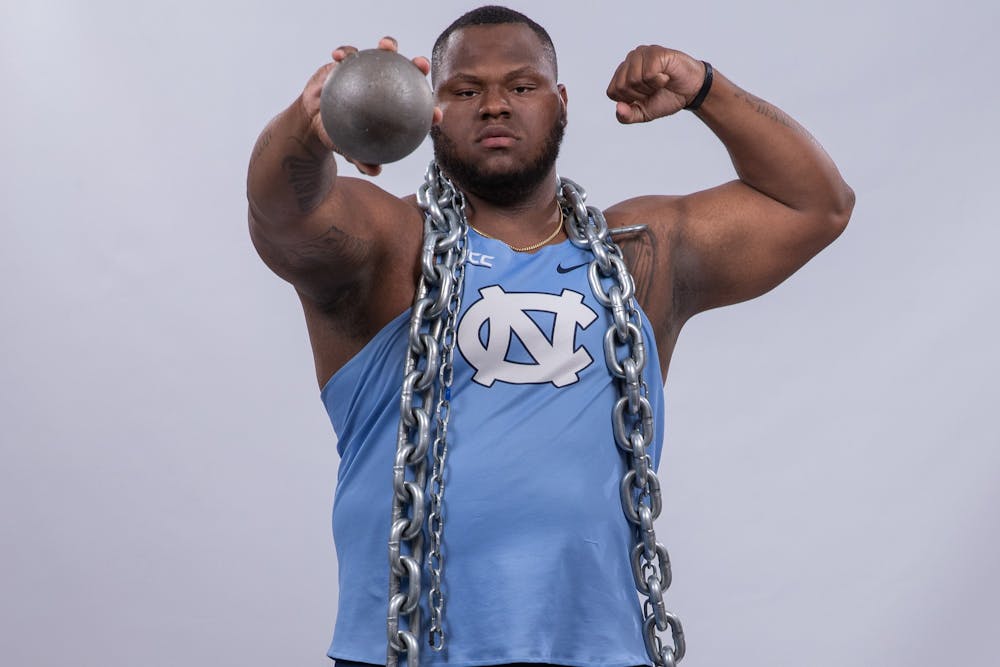"Family over everything."
These are the words inked on the right bicep of UNC track and field star Madias Loper. The fifth-year thrower has lived by these words throughout his entire career, honoring his family through his work in the community and in social justice initiatives.
When he was growing up, his mom made him write papers about historical Black figures and his family often traveled to civil rights landmarks. He was driven to make an impact after learning the history of the Brown v. Board of Education decision, which triggered his passion for diversity, equity and inclusion.
“Being separated and being talked down to and oppressed just because of the way that they looked was something I never grasped the concept of,” Loper said. “It has always motivated me to stand up for people and what is right. I never want to promote any narrative other than that I think everyone deserves an equal opportunity to be the best that they can be.”
Loper's childhood experiences motivated him throughout his time at UNC, where he has made an impact on the campus community.
He has developed his speaking voice, something he said he did not always possess, by leading his teammates on the field and speaking at social justice panels. He leans on his vulnerability, retelling personal anecdotes to move his audience.
Following the death of George Floyd at the hands of police brutality, Loper used his voice to lead Black Lives Matter protests on Franklin Street in the summer of 2020. He also held meetings to distribute BLM t-shirts among the track and field team.
“While I was the one with the microphone and the speaker in my hand, the thing that is so special about those kinds of things is the community,” Loper said. “That impact would not have been as prevalent if we didn’t have everyone in the community wanting to fight for what is right.”
Two years later, Loper was nationally recognized for his work when he was invited on a trip to Selma and Montgomery, Alabama with 47 other athletes in the ACC. He characterized the experience as one of his most life-changing moments, as he talked with people who once marched alongside Dr. Martin Luther King Jr. and visited the Equal Justice Initiative Legacy Museum in Montgomery, where he learned more about the history of racism in the United States.



